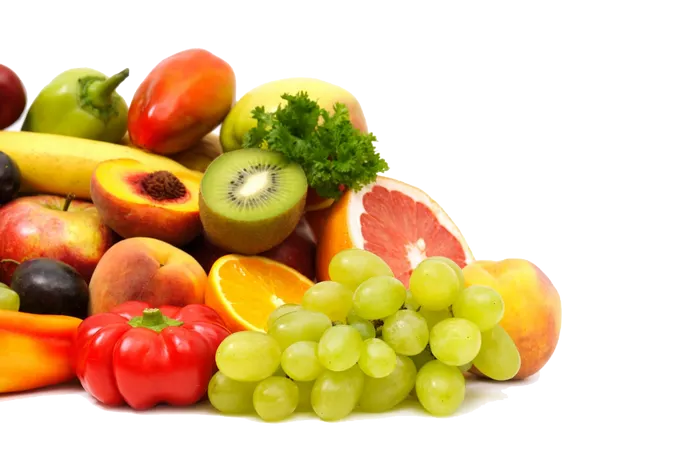Vegetables are a cornerstone of a healthy diet, providing essential vitamins, minerals, and fiber that support overall health and well-being. However, due to dietary restrictions, personal preferences, or other factors, some individuals may find it challenging to consume the recommended servings of vegetables. In such cases, understanding which vitamins are crucial and how to supplement them becomes essential. This article delves into the key vitamins found in vegetables, their importance, and the best ways to obtain them through supplements and alternative sources.
Understanding the Role of Vegetables in Nutrition
Vegetables are rich in a variety of vitamins and minerals that contribute to numerous bodily functions. They are particularly high in vitamins A, C, K, and several B vitamins, along with minerals such as potassium, magnesium, and calcium. Additionally, vegetables provide dietary fiber, which aids in digestion and helps maintain a healthy gut microbiome.
Key Vitamins Found in Vegetables
To effectively replace vegetables, it’s important to focus on the key vitamins they provide and understand their roles in the body.
Vitamin A
Vitamin A is crucial for maintaining healthy vision, immune function, and skin health. It exists in two primary forms: preformed vitamin A (retinol) found in animal products, and provitamin A (beta-carotene) found in plant sources like carrots, sweet potatoes, and leafy greens.
Supplement Sources: Beta-carotene supplements can effectively replace vegetable sources of vitamin A. Additionally, fish liver oil and multivitamins containing retinol are good alternatives.
Daily Requirement: The recommended daily allowance (RDA) for adult men is 900 micrograms (mcg) and 700 mcg for adult women.
Vitamin C
Vitamin C, or ascorbic acid, is a powerful antioxidant that supports the immune system, skin health, and the absorption of iron from plant-based foods. It is abundantly found in bell peppers, broccoli, Brussels sprouts, and spinach.
Supplement Sources: Vitamin C supplements are widely available in various forms, including tablets, capsules, and powders.
Daily Requirement: The RDA for vitamin C is 90 milligrams (mg) for men and 75 mg for women.
Vitamin K
Vitamin K is essential for blood clotting and bone health. There are two main forms: K1 (phylloquinone) found in leafy green vegetables and K2 (menaquinone) found in fermented foods and animal products.
Supplement Sources: Vitamin K supplements typically contain either K1 or K2. Fermented foods like natto and some cheeses also provide vitamin K2.
Daily Requirement: The adequate intake (AI) for vitamin K is 120 mcg for men and 90 mcg for women.
B Vitamins
Vegetables are a good source of several B vitamins, including folate (B9), riboflavin (B2), and thiamine (B1). These vitamins play critical roles in energy metabolism, red blood cell production, and overall cellular function.
Supplement Sources: B-complex vitamins are available in supplement form and provide a balanced combination of all B vitamins.
Daily Requirement: The RDAs vary for each B vitamin. For instance, folate requires 400 mcg, riboflavin requires 1.3 mg for men and 1.1 mg for women, and thiamine requires 1.2 mg for men and 1.1 mg for women.
Minerals Often Found in Vegetables
Apart from vitamins, vegetables are rich in several minerals that are vital for health. These include potassium, magnesium, calcium, and iron.
Potassium
Potassium is essential for maintaining fluid balance, nerve function, and muscle contractions. It is abundantly found in vegetables like potatoes, spinach, and tomatoes.
Supplement Sources: Potassium supplements and foods like bananas, oranges, and beans can help meet the requirement.
Daily Requirement: The AI for potassium is 3,400 mg for men and 2,600 mg for women.
Magnesium
Magnesium supports muscle and nerve function, blood sugar control, and bone health. It is found in leafy greens, nuts, seeds, and whole grains.
Supplement Sources: Magnesium supplements come in various forms, including magnesium citrate, magnesium oxide, and magnesium glycinate.
Daily Requirement: The RDA for magnesium is 400-420 mg for men and 310-320 mg for women.
Calcium
Calcium is vital for bone health, muscle function, and nerve signaling. It is found in green leafy vegetables, dairy products, and fortified foods.
Supplement Sources: Calcium supplements are available as calcium carbonate and calcium citrate.
Daily Requirement: The RDA for calcium is 1,000 mg for most adults, increasing to 1,200 mg for women over 50 and men over 70.
Iron
Iron is necessary for the production of hemoglobin and the transport of oxygen in the blood. Leafy greens like spinach and kale are good sources of iron.
Supplement Sources: Iron supplements, including ferrous sulfate and ferrous gluconate, are commonly used to meet dietary needs.
Daily Requirement: The RDA for iron is 8 mg for men and 18 mg for women, with increased needs during pregnancy.
Alternative Sources of Key Nutrients
When vegetables are limited or excluded from the diet, it’s crucial to find alternative sources to meet nutritional needs. Here are some suggestions:
Fruits: Many fruits provide similar vitamins and minerals found in vegetables. Citrus fruits, berries, and bananas are particularly nutrient-dense.
Legumes: Beans, lentils, and peas are excellent sources of B vitamins, iron, and magnesium.
Nuts and Seeds: Almonds, sunflower seeds, and chia seeds provide healthy fats, vitamin E, magnesium, and potassium.
Dairy and Fortified Products: Dairy products and fortified plant-based milks can provide calcium, vitamin D, and other essential nutrients.
Whole Grains: Foods like quinoa, brown rice, and oats are rich in B vitamins, magnesium, and fiber.
Considerations for Supplementation
While supplements can help bridge nutritional gaps, it’s important to use them wisely. Here are some tips for effective supplementation:
Consult a Healthcare Professional: Before starting any supplement regimen, consult with a healthcare provider to ensure it’s appropriate for your individual health needs.
Choose High-Quality Supplements: Look for supplements that are third-party tested for quality and purity. Brands with good reputations and certifications (e.g., USP, NSF) are preferable.
Monitor Intake Levels: Excessive intake of certain vitamins and minerals can cause adverse effects. Follow recommended dosages and monitor nutrient intake from all sources.
Consider Bioavailability: Some forms of supplements are more easily absorbed by the body. For example, magnesium citrate is more bioavailable than magnesium oxide.
Potential Risks and Side Effects
While supplementing to replace vegetables can be beneficial, it’s also important to be aware of potential risks and side effects:
Over-Supplementation: Taking too much of certain vitamins and minerals can lead to toxicity. For instance, excessive vitamin A can cause liver damage, while too much calcium can lead to kidney stones.
Nutrient Imbalances: Relying heavily on supplements without a balanced diet can cause imbalances in nutrient intake.
Interactions with Medications: Some supplements can interact with medications. For example, vitamin K can interfere with blood thinners, and high doses of calcium can affect the absorption of certain medications.
Conclusion
Replacing vegetables with supplements requires careful planning and consideration. While supplements can help meet nutritional needs, they should not entirely replace a balanced diet rich in whole foods. Understanding the key vitamins and minerals provided by vegetables, finding alternative food sources, and using supplements wisely can help maintain optimal health. Always consult with a healthcare provider before making significant changes to your diet or supplement regimen to ensure it aligns with your individual health needs. By taking these steps, individuals can effectively manage their nutrition and support their overall well-being even when vegetables are limited in their diet.
[inline_related_posts title=”You Might Be Interested In” title_align=”left” style=”list” number=”6″ align=”none” ids=”9093,9090,8987″ by=”categories” orderby=”rand” order=”DESC” hide_thumb=”no” thumb_right=”no” views=”no” date=”yes” grid_columns=”2″ post_type=”” tax=””]

































